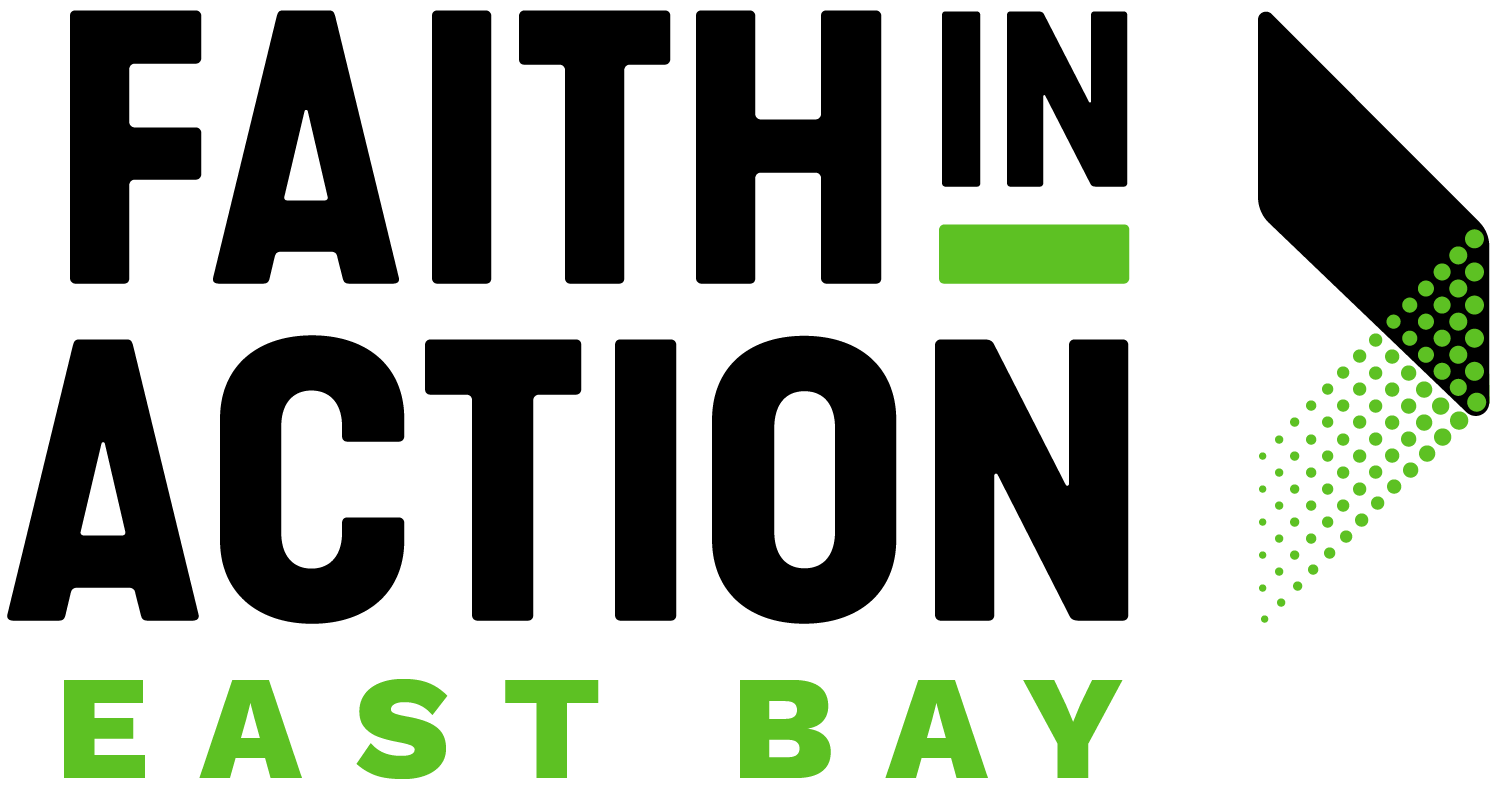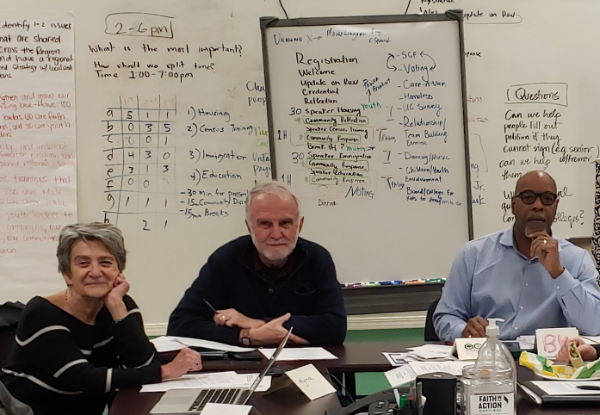From the South Bronx to Philadelphia to Alameda County, Myrna Schwartz is compelled by the Jewish value of tikkun olam — repair the world. She works to end the over-incarceration of people with mental illness, substance use disorder, and homelessness.
When did you first get involved with Faith in Action East Bay (FIAEB)? What inspired you to become involved?
I got involved with Oakland Community Organization (OCO) shortly before it expanded regionally and became Faith in Action East Bay (FIAEB). I had recently joined Kehilla Community Synagogue and began participating in its Economic Justice Committee. There I met Richard Speiglman and Mandy Bratt, leaders in Kehilla’s Local Organizing Committee (LOC). They brought me to OCO citywide meetings and meetings of the Live Free table, and I soon became committed to the people and work.
Where are you from? Who are some of your important influences and inspirations for community work? I was born in the South Bronx to parents who had immigrated from Eastern Europe in the lead-up to WWII. I lived for many years in Philadelphia, working and raising our two daughters. I began doing community work though a synagogue there that was founded on principles of justice, and whose work included advocating a two-state solution to the crisis in Israel-Palestine. That was a highly unpopular position back then, and I was deeply inspired by the courage of our Rabbi, Brian Walt, who was frequently jeered, cursed, and threatened when he spoke out in the mainstream Jewish community.
For awhile I represented my congregation in a coalition called Philadelphia Interfaith Action (PIA), working with their Education table. The community leaders doing that work were amazing – mothers in underserved neighborhoods fighting for the most basic services in their local schools and refusing to settle for the empty promises and half-measures the District offered them. I learned some good organizing lessons there.
What FIAEB issue are you most involved with now? How is it going?
I’m very involved with the ICJJ table. ICJJ (Interfaith Coalition for Justice in our Jails) developed from the Live Free table to fight mass incarceration right here in Alameda County’s Santa Rita Jail. With ICJJ, I work to end the over-incarceration of people with mental illness, substance use disorder, and homelessness. It’s pretty clear what needs to be done – build up treatment and housing resources in the community and increase the capacity of specialized courts where folks with these behavioral health challenges can be diverted from jail to the care and services they need. These diversion measures are not only more humane, they are also cost-effective and more successful than jail at stopping repeat offenses.
“It’s pretty clear what needs to be done – build up treatment and housing resources in the community and increase the capacity of specialized courts where folks with these behavioral health challenges can be diverted from jail to the care and services they need. These diversion measures are not only more humane, they are also cost-effective and more successful than jail at stopping repeat offenses.”
How’s it going? ICJJ-led demonstrations and vigils have brought media attention to Santa Rita Jail’s high rate of suicides and other avoidable deaths and the suffering of families deprived of information and explanation. Together with other activists in this space, we meet often with officials of the Sheriff’s Department, Behavioral Health, and Board of Supervisors to make our demands and gather information. Generous support from the State is helping to grease the wheels for change. Still, Alameda County’s Board of Supervisors lacks the leadership to end its over-reliance on jail as a response to our crises in mental illness and homelessness.
Recognizing the need to build power throughout the county, ICJJ is working to expand our outreach to congregations and residents in South and East County. For example, last month FIAEB-ICJJ sponsored an educational Town Hall at Niles Discovery Church in Fremont, focused on the role of the District Attorney in promoting public safety. D.A. Pamela Price was present in-person for a hybrid Q&A with 336 participants, with good representation from areas outside Oakland and Berkeley.
How does your faith inspire you to do this work?
My Jewish faith calls me to pursue justice and work to repair our broken world. The rabbis teach: “Do not turn away from the enormity of the world’s suffering…You are not obligated to complete the work, but neither are you free to abandon it.” I feel this deeply.

